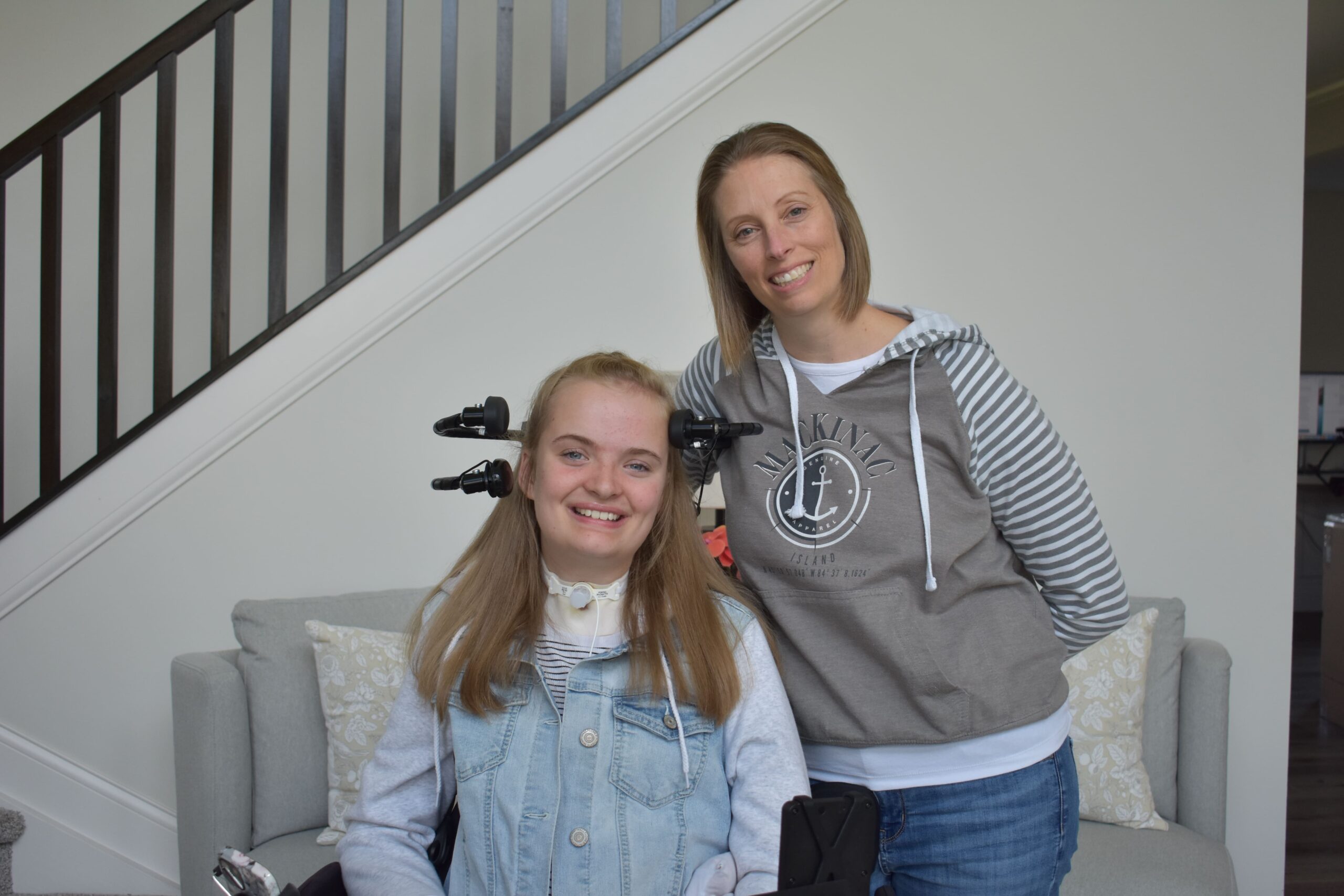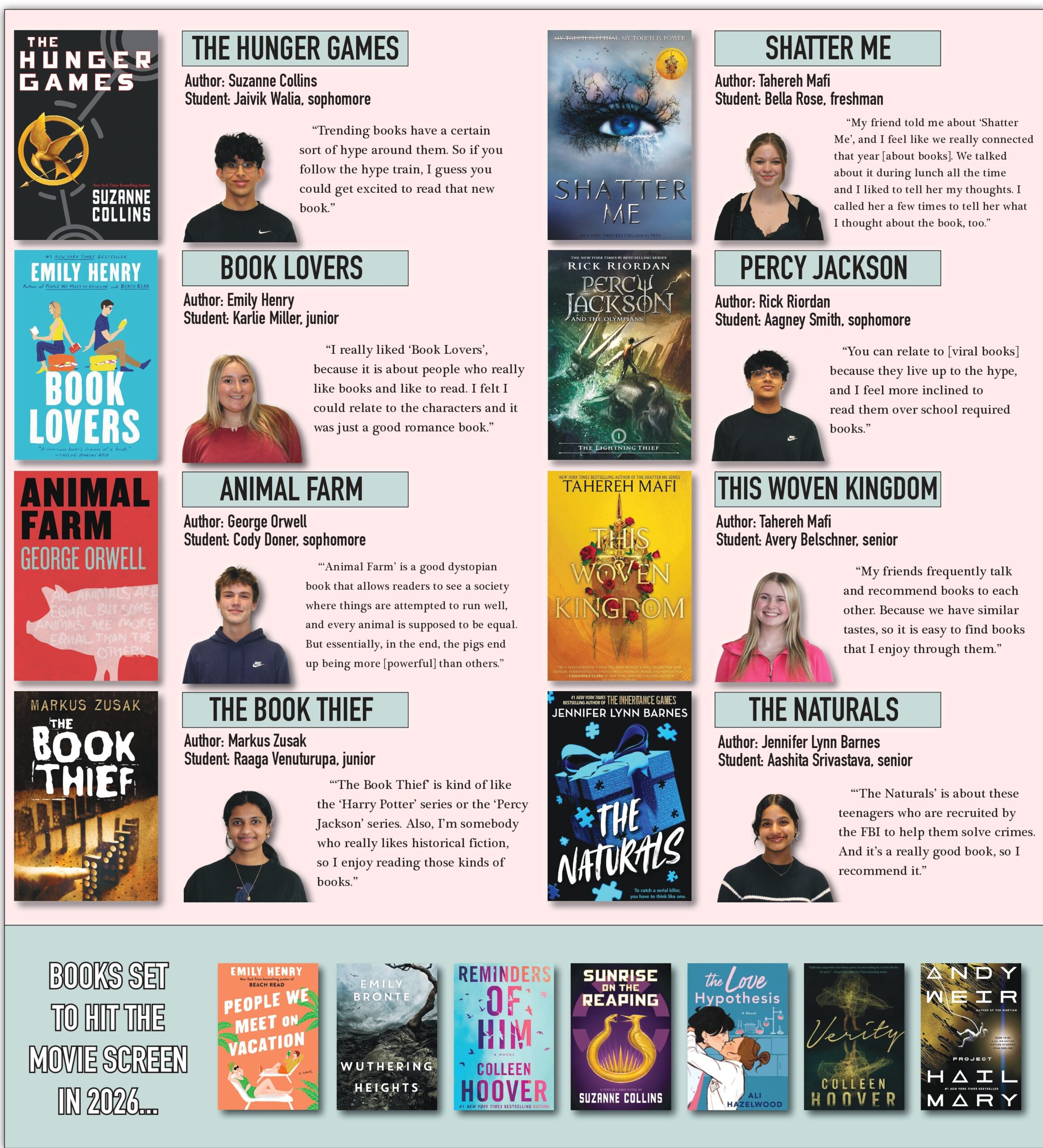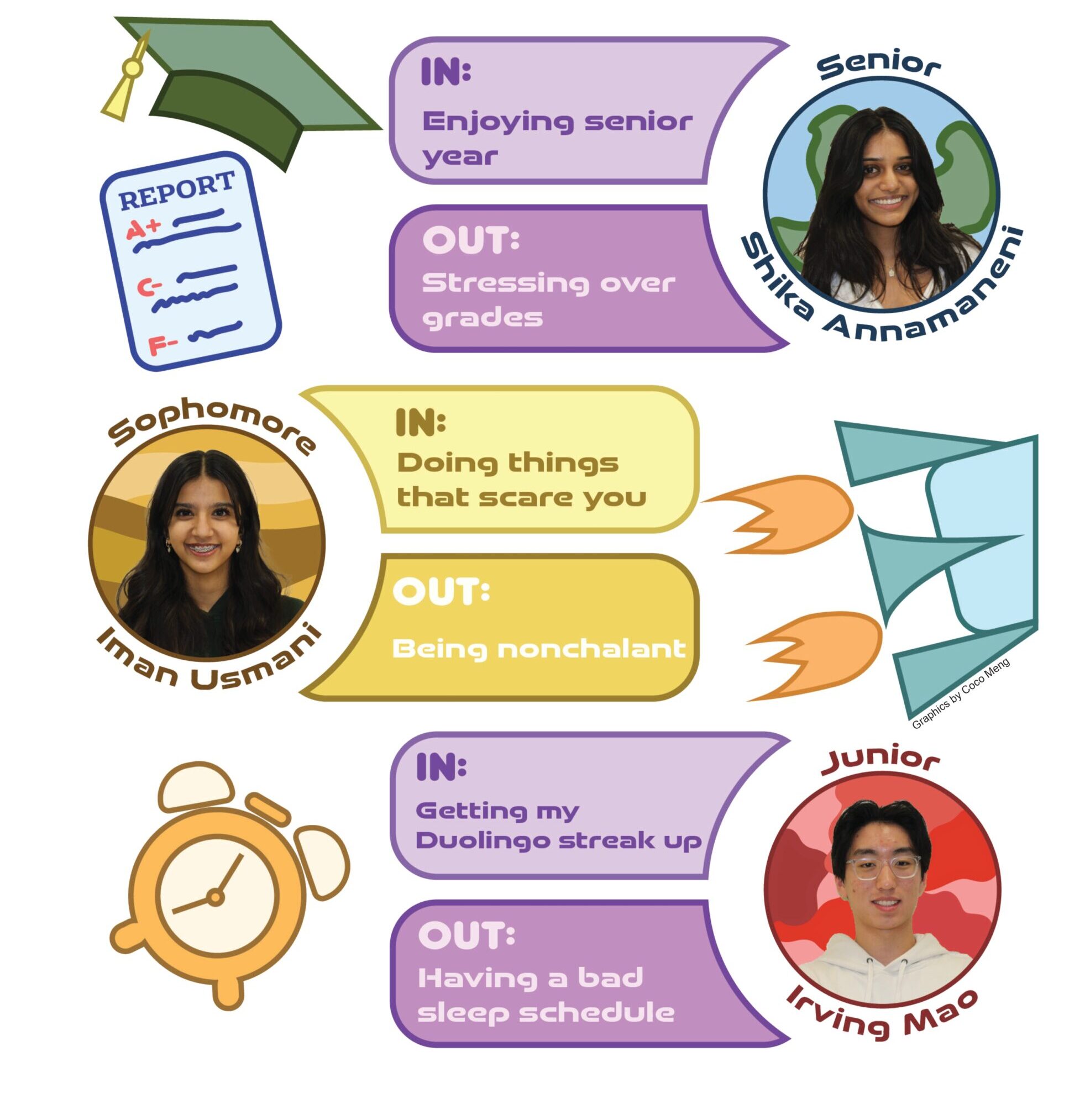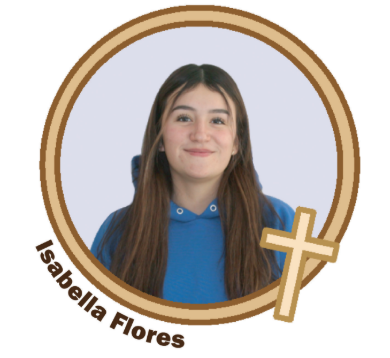Katie Samol | The Chronicle
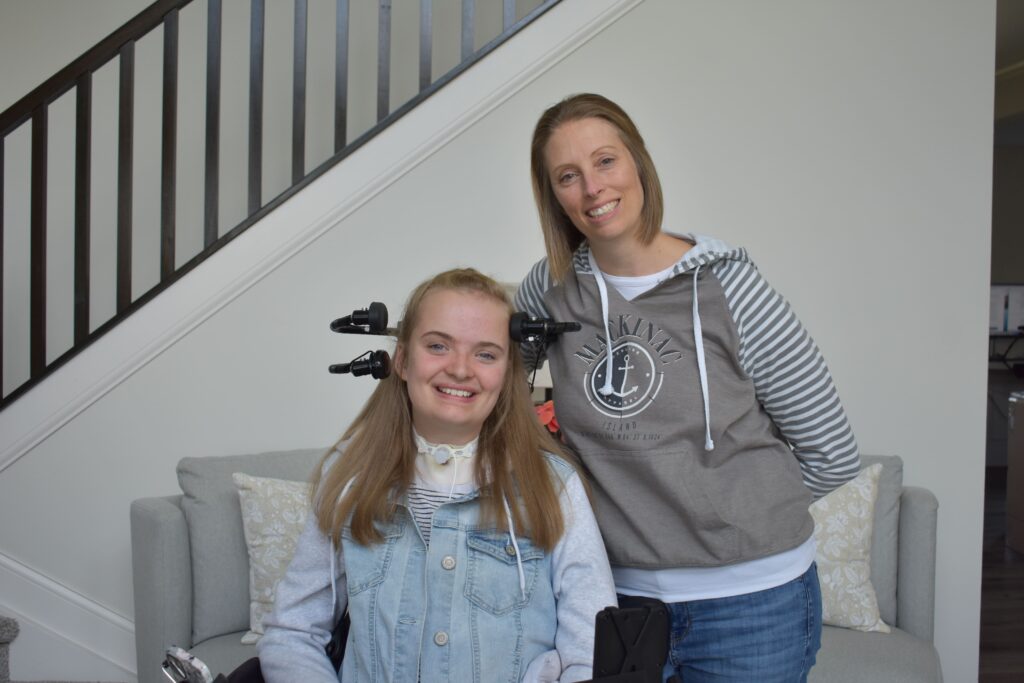
Makayla Conder (left) with her mother Teranne Conder (right) at their home in Mason.
One Saturday during an early summer afternoon, Makayla Conder’s life was changed in an instant.
Makayla Conder is a Mason High School junior and a C3 complete tetraplegic, meaning all four of her limbs and her torso are paralyzed. On May 28, 2022, Makayla was sitting on a tire swing with her sister and two of their friends at a kickoff to summer pool party. The branch holding up the swing broke and fell on Makayla’s head, crushing her C4, C5 and C6 vertebrae and her neck. Her left clavicle and elbow were broken and her skull was cracked.
Makayla’s mother and father, Teranne and Thomas Conder, were not at the party when the accident occurred. A friend of Makayla’s who was on the tire swing with her called them immediately.
“I did not think that it was as bad as it was,” Teranne said. “She just said, ‘Makayla is hurt. Get here now.’ I thought she might have a compound fracture and be in a cast.”
Teranne and Thomas received a call from Makayla’s older brother, Dallin, as they drove to the nearby house hosting the party. Teranne said he was hysterical as he tried to explain the situation.
“Everybody was just frozen when we got there,” Teranne said. “Nobody moved anywhere. I went running, and everybody just stared at me.”
Teranne and Thomas found Makayla under a large tree at the back of the property with no signs of movement. Emergency medical staff (EMS) swarmed around Makayla and transferred her to the ambulance.
“The EMS needed all the medical staff that could fit,” Teranne said. “All I could do was keep calling back to her, ‘I’m here, I’m here, don’t worry, I’m here.’ She came to a couple of times, but all she said was, ‘I can’t breathe. I can’t breathe.’”
Makayla spent three months at the Cincinnati Children’s Burnet Campus, then transferred to the Liberty campus for an additional four months. Her days were filled with occupational and physical therapy, focused on helping her breathe.
“[Makayla] is very determined,” Teranne said. “She has a one-track mind. Every time a nurse would come in, they would always say, ‘Can I get you anything?’ before they left. Every single time, Makayla would say, ‘I want a cup of water.’ And every one of them would tell her, ‘You can’t have water because we have to do a swallow test.’”
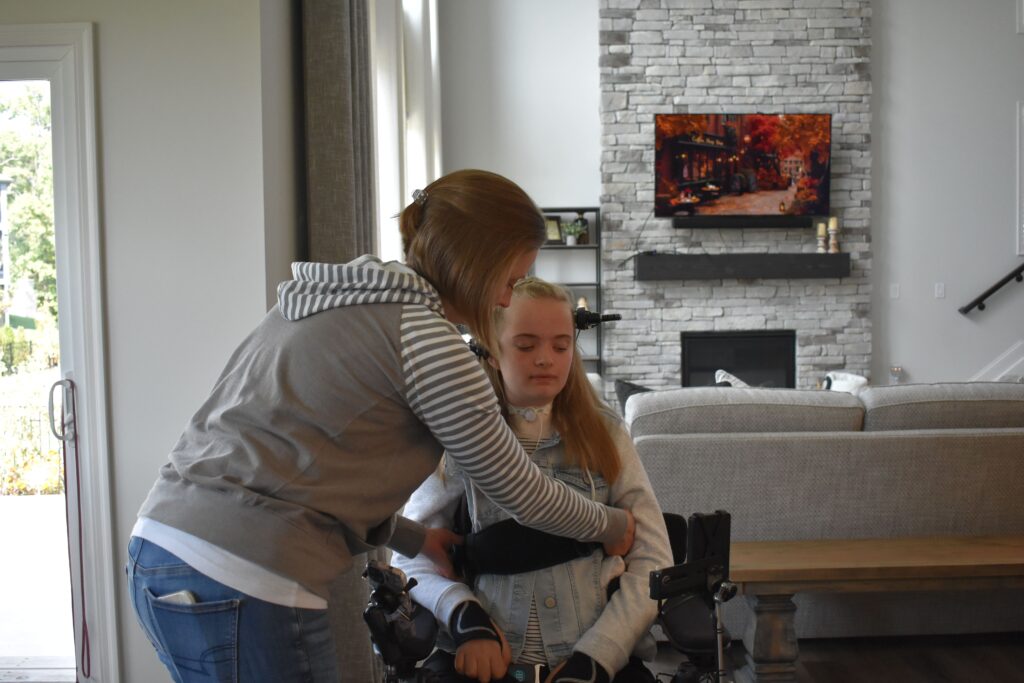
Teranne Conder (left) helps adjust Makayla Conder’s (right) wheelchair strap.
Teranne said it was likely Makayla would not have been able to drink water due to the high location of the injury she sustained. But after passing a series of swallow tests, Makayla was officially cleared to resume drinking.
“Her whole face lit up with joy when she [found out] she could actually drink water,” Teranne said. “Now, [Makayla] is like, ‘I’m grateful for the little things. It just means a lot that I can drink water.’ She now knows that it’s a blessing that she can do it.”
Makayla was also originally in speech therapy, but the doctors discovered she had no brain injury. The weight of the tree impacted her spine rather than her skull.
“It is amazing that she had no brain injury considering the weight of the tree branch that landed on her head,” Teranne said. “We never lost Makayla. Her personality, her mind, we never lost her. That was a real big blessing.”
Makayla was discharged after seven months. While the Conders were all excited, Teranne said Makayla found the experience stressful.
“She was worried because all the nurses had been [at the hospital] helping,” Teranne said. “But I was with her all the time. I slept there, we ate there and I never left the hospital. I learned very quickly how to take care of Makayla and what it would look like.”
Teranne said both of Makayla’s older siblings were still living at home and everyone was together when Makayla was cleared to return.
“She took longer to feel comfortable,” Teranne said. “It was very stressful for her to think, ‘What if I need something, and you guys don’t know how to take care of me?’ We worked through that. I think it only took a couple of weeks before [Makayla] was saying, ‘I don’t want to go back to the hospital.’”
After fundraising $250,000 online to cover the trip and surgery, Makayla and Teranne flew to Bangkok, Thailand, for an experimental procedure called an epidural stimulation treatment in October 2024. Makayla worked with a physiotherapy team for 35 days, learning how to train her body to move again.
“It worked really well,” Makayla said. “I’m able to contribute more to exercises. Rather than someone just doing it for me, I’m able to work with them and [exercise] on my own. Mostly my arms and my shoulders [have regained movement]. I can move them a bit more now, I feel a lot stronger there too.”
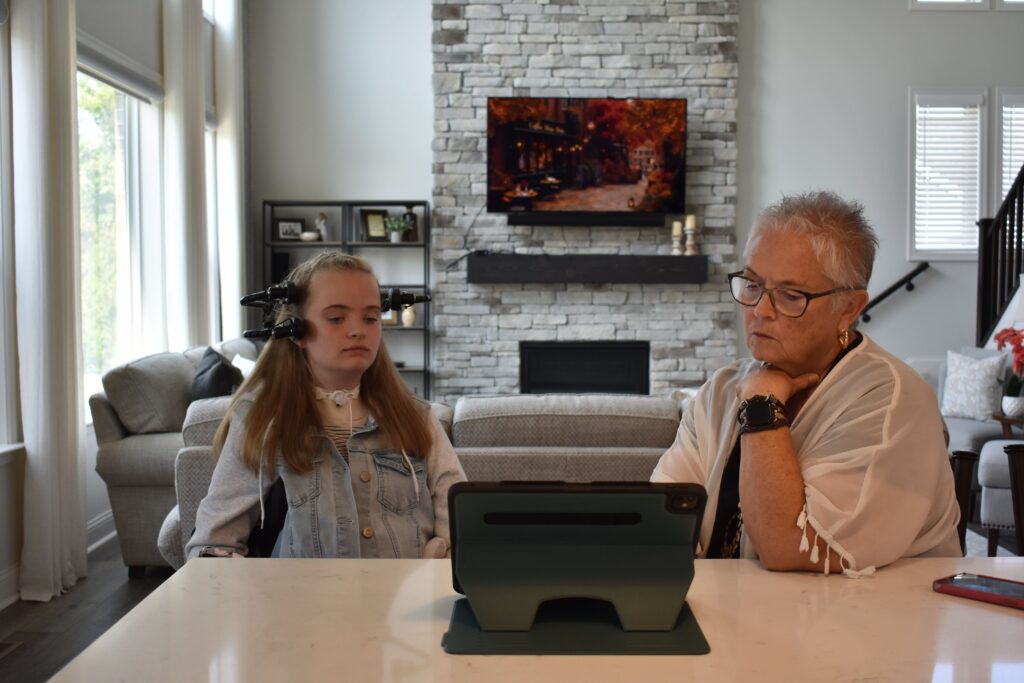
Makayla Conder (left) listens as Sue Stratton (right) teaches in the Conders’ home.
Retired Mason Middle School Intervention Specialist Sue Stratton has worked with Makayla as an at-home instructor since Makayla was in the eighth grade. Makayla had to complete her schoolwork from her bed for three years.
“Her level of independence has grown leaps and bounds,” Stratton said. “I used to sit beside the bed when I worked with her. Now, after the treatment, she can sit in the wheelchair and operate it [so that] we are eye to eye.”
Makayla completes schoolwork on a desktop computer with a monitor that senses eye movement and facial expression. She moves the cursor by changing where she looks, clicks by smiling and scrolls by sticking out her tongue. Every command that is possible with a mouse is possible with Makayla’s monitor. Sensors on her wheelchair, next to her temples, cheeks and behind her head help Makayla to maneuver without the use of her hands.
“I can still write up papers with my voice,” Makayla said. “Everything’s a little bit different, but we figured out a way to make it manageable. Not being able to write down what I’m thinking or write down my math problems or even just fidget [was] challenging to overcome. It’s been kind of hard to learn that [because] I was a very hands-on learner.”
Stratton said she saw Makayla’s perseverance and positivity when working with her on schoolwork after her epidural stimulator treatment.
“I honestly can’t think of a more life-altering occurrence than what happened to her,” Stratton said. “Her grit and determination and positivity is without parallel. I don’t think anyone else on earth could have handled it as well as she has handled it. I know she has moments of despair or sadness, but she is so committed to her schoolwork and she’s so positive.”
Even in the face of such adversity and adjustments, Makayla said she has found bright spots to focus on. She said continual improvement and support from her family drives her.
“Having people tell me that I can do it helps motivate me,” Makayla said. “Seeing little progress that I make, that I’m not stuck in this one state and those around me supporting me, like my mom, is motivating. She tells me that I can do hard things all the time.”
Teranne said that because the accident that happened was so huge and abrupt, it allowed the Conders to view life from a different perspective.
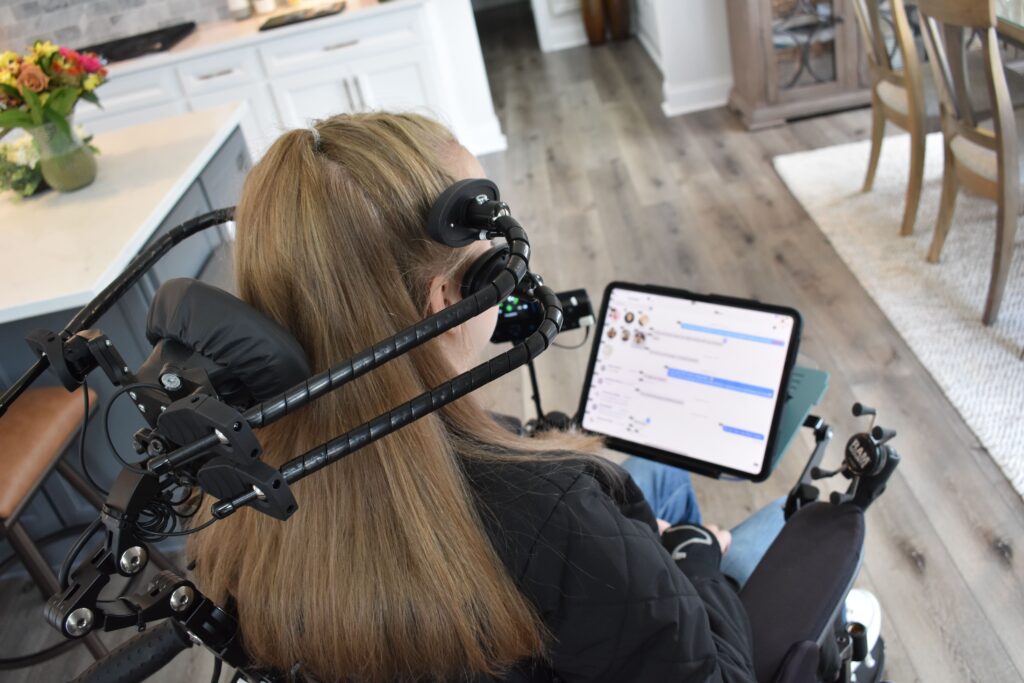
Makayla Conder texts friends and family on her ipad using Voice Control.
“We found that the most important things in life were our faith, family and friends,” Teranne said. “That was the core of what we held on to after everything else kind of fell apart. Letting so many things that we thought were so important fall away, and really focusing on the most important things in life–that perspective really changed with Makayla’s accident.”
Working closely with her daughter gave her a front row seat to Makayla’s everyday mentality and the lessons to be learned from her.
“She’s taught me patience in adversity,” Teranne said. “Still showing love and kindness, even when things are hard. To be able to speak with a kind word, even when everything around you is kind of falling apart. The patience that she has exhibited, the smiles, the love and joy to find in life, even through hard times, is an example to everybody.”
Teranne said she has seen Makayla’s true character shine in this accident and that Makayla has a story to tell. She said Makayla has quite a role to play in this life: as an example, a voice of hope and a teacher.
“Something this tragic would take anybody down,” Teranne said. “But Makayla keeps getting back up, and she keeps smiling while she’s doing it. That’s why she’s successful, why she keeps progressing and why every day we keep finding more and more hope. [We are] looking forward to what can still come, because she’s determined.”


